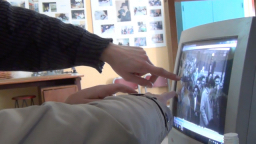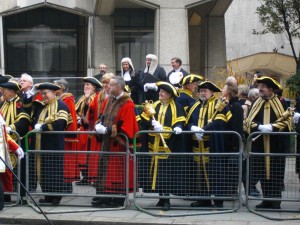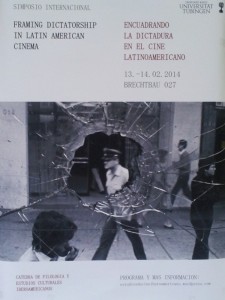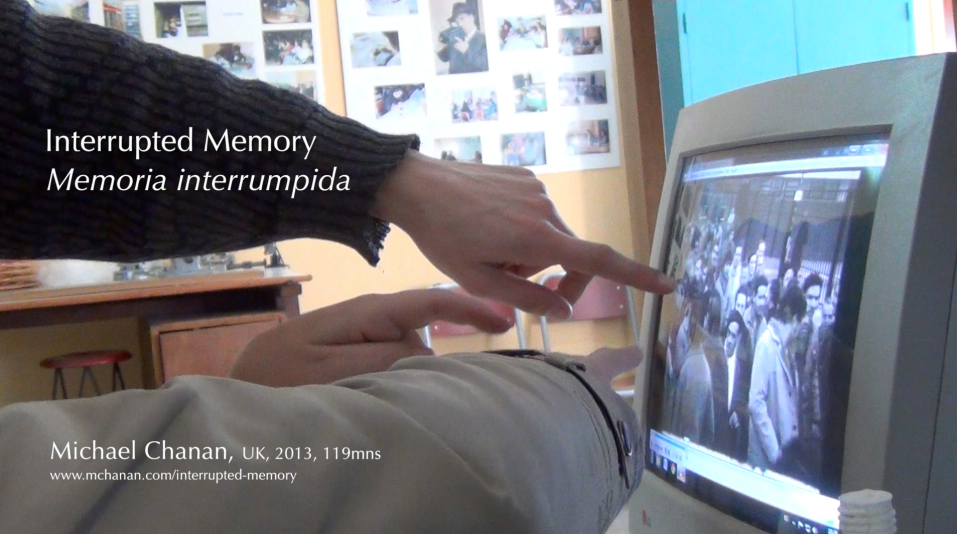Students take to the streets
[vimeo]http://vimeo.com/14966533[/vimeo]
Students in Buenos Aires have taken to the streets in protest against the appalling conditions to be found in many of the city’s schools. A lack of heating in the cold winter just coming to an end has brought to a head a state of neglect which has been building up for several years. In the inimitable style of Argentine tradition, there have not only been occupations of at one point as many as forty of the city’s secondary schools, but classes have been taking place in the street. The protests have been going on for a month, and have now been been joined by university students belonging to several faculties where buildings are in similarly bad condition.
This was not what I was expecting to find when I arrived in Buenos Aires to give a talk about teaching documentary at an event promoted by the Ministry of Education and intended primarily as a showcase for creative practices in the universities. I was also supposed to be speaking at the University of Buenos Aires, which was cancelled when Social Sciences, the faculty where this was due to take place, was occupied when a window fell on one of the students. So instead I go to film the occupation, and the demonstration being mounted outside the Ministry of Education. Here’s the result.
Television channels allocated to Universities
What I did expect was debate about the new audiovisual law introduced by la Presidenta, Cristina Kirchner, which is exercising the numerous film departments in universities up and down the country because the universities are among the beneficiaries. On the face of it, the measures appear progressive. The object of the new law is to limit the monopoly of the two leading media groups belonging to the newspapers Clarín and La Nación, and to promote plurality and diversity by allocating television channels to non-profit organizations, including unions, human rights groups, churches and universities. However, there are several catches which reveal the peculiar nature of what is called Kirchnerismo (Cristina’s husband having been President before her).
Supposedly the Kirchners belong to the Peronist movement, but since Peronism is extremely difficult to define—it has its own left and right wings—this leaves plenty of room for political vacillation. Moreover, Kirchnerismo does nothing to counter a high level of corruption among politicians. I am told, for example, that what lies behind the schools crisis is that Mauricio Macri, the mayor of Buenos Aires, has appropriated huge sums of money to support his campaign for next year’s presidential elections, thus reducing the city’s education budget to a few per cent of what it’s supposed to be. The students are trying to obtain commitments for a programme of works to put the schools in order and remain dissatisfied with what has been promised so far, so for the moment the occupations continue—and indeed La Presidenta herself has given the schools protest her approval (but not that of the university students, because the universities fall under the national budget, not that of the city).
The story behind the new audiovisual law is much more complicated. For one thing, it goes back to 1976, when the military dictatorship bought into Papel Prensa, the country’s monopoly supplier of newsprint, and thus the basis of the newspapers’ media empires. No government until now has dared to challenge the old arrangements, and a revision of media legislation dating back to the military dictatorship is clearly long overdue. For this reason, some of my friends in Buenos Aires, without being Kirchneristas, nonetheless support the measures now proposed, along with the producers. Others, however, point out that this is no solution, since the package is designed to keep the Kirchners in power by giving the advantage to media interests who are more friendly to them—or easier to buy off. The most unpopular part of these measures is the order now coming up for debate in the legislature to close down the Internet service provider Fibertel, which has 55% of the market, and last year merged with cable television provider Cablevisión, owned by Clarín. A more radical answer is the proposal by Fernando (Pino) Solanas, who will be known to readers of this blog as a film-maker, co-director of The Hour of the Furnaces back in 1968, and co-author of the manifesto ‘Towards a Third Cinema’, but now an elected senator at the head of a grouping called Proyecto Sur. Solanas has proposed that both Internet and mobile phone provision should become public services. He is also a possible candidate in next year’s presidential elections, and has just formed an alliance with the Socialists, despite certain differences but with the aim of creating a strong centre-left platform.
Meanwhile, one of the problems with the proposal to allocate television channels to the universities is where production funds are to come from. It seems that programme-makers will either be dependent on the state film institute INCAA, or the universities will have to subcontract content to commercial operators. Another problem is that content will be controlled by a series of gate-keepers, in a structure that seems to be designed to ensure that politically critical programming will be practically impossible. Nevertheless, Argentine cinema, both fiction and documentary, continues to thrive, and Buenos Aires remains a city of cinephiles as well as tango.
As for the students, their protests are part of wider polarisation between the political and the popular classes, an observation made by both Adrian, the political science student in the video, and the socialist politician (and ertswhile presidential candidate) Luis Zamora, who I met on the street observing the secondary school students’ demo. Zamora, and my friend Guillermo De Carli, my host in Buenos Aires, who teaches documentary in the very department which is under occupation, also both remarked on the spontaneity of the students’ actions and the joyous and celebratory atmosphere. In other words, despite the official disposition to suspect the hand of militant revolutionary groups like the Trotskyists (of whom there were only a few at the demonstration), the collective resolution of the students, their sense of discipline, the vigorous debate in their assemblies (judging by the one I Iistened to on the street), and the possibility and even likelihood that the protests will spread—all this suggests that something else altogether is afoot.
A final observation. These occupations have not been reported in the English-speaking media, and judging by a quick Google search, hardly in Spanish outside Argentina itself either. A student interviewed in the Argentine publication Pagina 12 comments that the students’ growing politicisation is rejected by both the political leaders and the mass media, who do not want to see young people developing a critical consciousness that could bring about change. One can only suppose that this also applies elsewhere. Politicians live only for short-term gain, the media inculcate amnesia, but in both cases they themselves doubtless remember the student movement of the 1960s, and I expect they’re becoming scared.
 What are the origins of ‘Money Puzzles’ and how do they fit in with your background as a documentarist?
What are the origins of ‘Money Puzzles’ and how do they fit in with your background as a documentarist?




